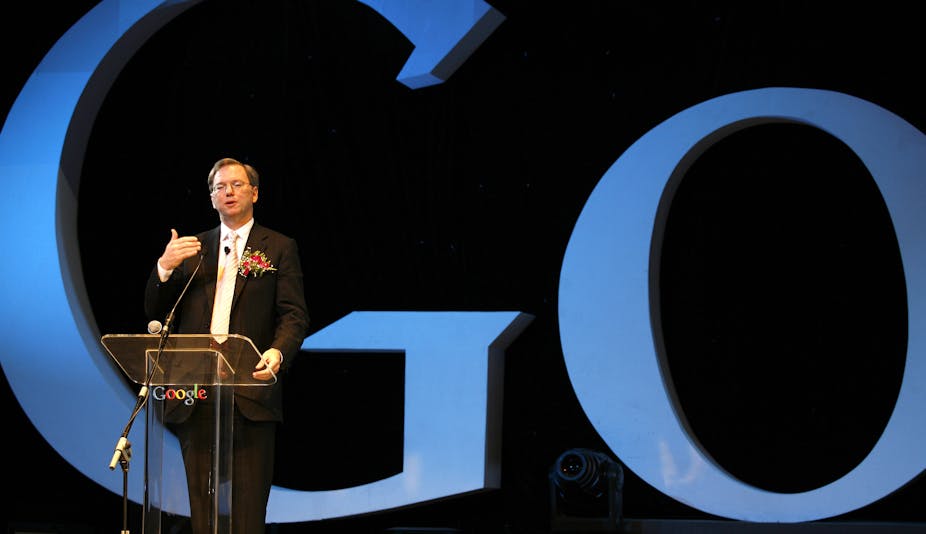Google chairman Eric Schmidt will make history tomorrow as the first IT/internet executive to deliver the MacTaggart lecture at the Edinburgh International Television Festival.
In doing so, he will face significant challenges.
The company is making overtures to the TV industry to collaborate with the US$30 billion a year internet behemoth.
Schmidt is expected to argue – albeit in a more conciliatory tone than previous Google approaches to content providers – that TV needs Google as much as Google needs TV.
Broadcasters are likely to be sceptical after the company’s controversial forays into digitising books, initially undertaken without authors’ and publishers’ permission, and its mapping activities that have drawn complaints of invasion of privacy.
Also, for much of its six-year history, Google-owned YouTube allowed users to upload copyrighted content including clips of hit TV shows and movies without remorse. In turn, Google Search helped users find and download pirated material from the internet.
So, TV executives are unlikely to succumb easily to Google’s latest promise to do good, not evil.
Furthermore, Google TV, which uses a set-top box or built-in technology to turn TV sets into web browsers, has met with a lukewarm response after being priced well above what users are prepared to pay and reports that the system is “clunky and difficult to use”.
This flawed attempt at “doing TV” demonstrates Google does not yet understand the television market.
On the other hand, many TV networks are losing audiences – particularly in the lucrative 16–34 age group which has taken to clicking a mouse instead of a TV remote.
Also, most TV broadcasters are used to giving away their content for free, drawing revenue from the sale of advertising packaged with the content. So what’s the difference in giving away content and taking revenue from advertising on the internet instead of air waves?
Not much, is the answer, provided you can trust your partners and share the booty. That will be the key issue Google needs to address with broadcasters.
There are signs Google has reformed its early somewhat-buccaneering ways, with revenue-sharing deals in place with some content providers and tools such as Content ID, which scans the internet to detect pirated material.
But the challenge for Google, as with its major internet competitor Facebook, is keeping faith with customers and business partners and living up to the promises of Web 2.0 – an interactive, collaborative environment.
Clumsy strategies in relation to privacy and copyright, and antagonistic practices towards other companies in the market, have dulled the shine of internet stars such as Google in recent times.
While the BBC agreed to a deal to put its content on YouTube in 2009, the three major US TV networks – ABC, CBS and NBC – blocked their content from appearing on Google TV last year.
And earlier this year, Google was involved in a reported US$1 billion legal battle with Viacom over suggestions Google’s YouTube content breached Viacom’s copyright.
Google TV was launched into the market in 2010 hot on the heels of AppleTV and Google has recently forked out US$12.5 billion to buy Motorola Mobility as part of its strategy to conquer the emerging mobile market.
But, despite its success, Google lacks content even compared with what Apple TV offers via its iTunes and Netflix application.
The CEO of UK TV marketing body Thinkbox, Tess Alps, published an open letter to Eric Schmidt in MediaWeek on Monday calling for Google to work collaboratively with other TV stakeholders and not “feed off TV advertising without making any corresponding investment in content”.
Alps and other TV industry leaders have pooh-poohed Google’s $100 million global investment in content production as “teeny” compared with that made by major TV networks.
So can Google do good for TV – and can TV work for Google? The answer seems to be “it depends”.
It depends on Google fixing a few things it has got wrong so far including:
1) Building bridges with the TV industry
2) getting the pricing and the applications for Google TV right, and
3) recognising the importance of creating and value-adding content rather than simply parasitically exploiting others’ content.

